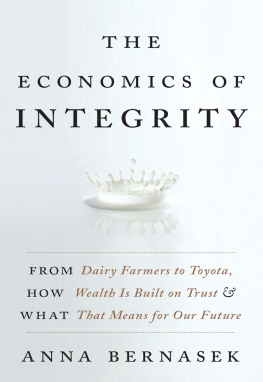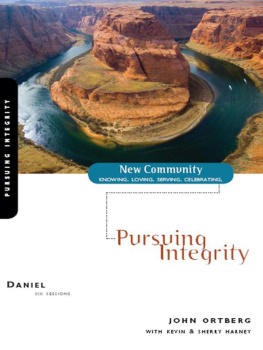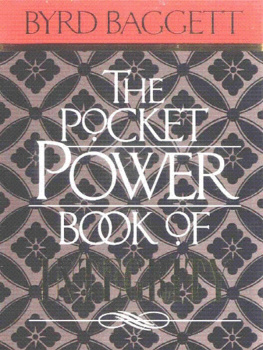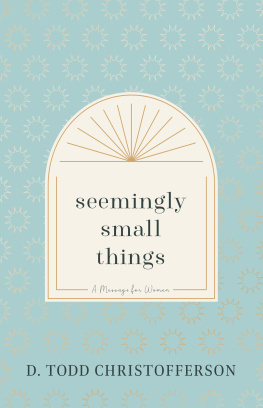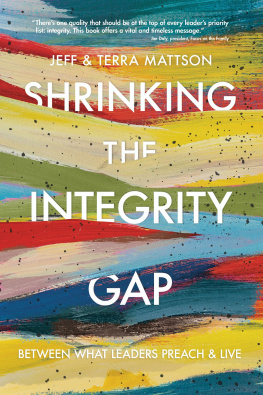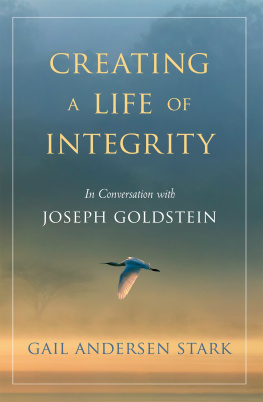Praise for The Law of Small Things
Stuart Brodys The Law of Small Things is an engaging study in contradiction. It is easily readable and full of real-life examples of truthfulness and values-driven actionor the lack thereofand it raises challenging questions that cause us to reconsider our daily and unthinking habits of self-justification and self-deception. It calls us to a higher standard of integrity and consistency in our values and actions while it reassures us that the pursuit of this standard is an ongoing process, a journey, rather than an unwavering status achieved and held without continual effort. On the one hand, the standard for integrity Brody proffers may make us uncomfortable as it strips away our usual self-protective illusions; however, he encourages and supports us with his clear-eyed and pragmatic insistence on the need for practice to move toward integrity rather than simply sorting the wheat from the chaff or the good from the bad for all time. This is a book that inspires, threatens, and enables in equal measure, and for those reasons, it is well worth reading.
Mary C. Gentile, PhD, author of Giving Voice to Values and Professor of Practice, Darden School of Business, University of Virginia
The idea that integrity can be learned is provocative. We tend to think that it is something you either have or dont. The Law of Small Things not only shows us that good behavior, or integrity, can be learned but gives us instruction on how to learn it. This book should be in the office of every elected official from city councils to the United States Senate. If we all practiced the lessons contained in this book, the political noise surrounding us would become a symphony of good manners, and we would all welcome a return to civility. This book is a step in that direction.
Gene Terry, former Executive Director, Texas Association of Counties
The Law of Small Things offers an extremely sophisticated yet practical approach to repairing the tear in the social, ethical, and moral fabric of the United States and the world. The prophecy of Isaiah 5:20 says, Woe unto them that call evil good, And good evil; That change darkness into light, And light into darkness; That change bitter into sweet, And sweet into bitter! A more contemporary translation might be, You are headed for trouble! You say wrong is right, darkness is light, and bitter is sweet. Stuart discusses a doable, one-step-at-a-time approach that makes every little action count. He shows us how to slowly but surely reclaim spiritual strength to repair our moral, ethical, spiritual connection to the cosmic truth of the great traditions anchored in the Torahs Ten Speakings, the Buddhist Eightfold Path, and the Hindu Yamas and Niyamas. The books release is perfectly timed to meet societys current needs.
Rabbi Gabriel Cousens, MD, MD(H), DD
Mr. Brody finds in the practice of small things a way to ingrain within ourselves the most important values: integrity, authenticity, and good conscience. Recommended reading for anyone who aspires to enter the arena of public life or for those who want to live with a good feeling about the everyday decisions they make.
Jonathan Rothschild, Mayor of Tucson
Stuart Brody defines integrity as the keeping of promises, clearly stated or implied. He then demonstrates how keeping our commitments is critical even in seemingly inconsequential situations with plenty of examples drawn from his political, personal, and consulting experience. Brody refuses to let readers off the hook, challenging us to keep our promises, both big and small.
Craig Johnson, author of Meeting the Ethical Challenges of Leadership and Professor Emeritus of Leadership Studies, George Fox University
This book is a must-read for anyone interested in personal transformation, corporate social responsibility, and national change. The reader is invited to become a soul-searching participant in an examination of his or her own moral choices, conveniences, and illusions. But Stu also poses a way through the thicket of self-interest to transform ourselves and our culture. Although most of the examples are drawn from the American experience, it is easy to see how they apply to all cultures. I intend to use it in my own courses in France.
Paul Clermont, Teacher of Ethics and Corporate Social Responsibility, ESCE International Business School, Lyon, France
Its been said that ethics is obedience to the unenforceable. But in this book, Brody shows us that the world of integrity does not need so much to be enforced as enticed. We need to practice the behaviors he outlines and build the skills of integrity like any other core competency. This book offers us tools to help us navigate the gauntlet of ethical issues and discern what is right for the many unique situations in which we find ourselves. The Law of Small Things helps us accomplish that big task.
Paul Campbell, Director, Public Sector Group, UnitedHealthcare, and Adjunct Professor, Kellogg School of Management, Northwestern University
Stu Brodys many years in government service and politics have provided him significant insights into the nature of trust in government, or, as we more often experience it, the breakdown of trust in government. Rather than simply condemning politicians, he has provided a more complex analysis of personal and public integrity and a long-term and practical approach to addressing it.
Jeffrey M. Wice, Fellow, Rockefeller Institute of Government
What you have in your hands is not simply a book but a door to a fulfilled, rewarding, and perhaps unimagined life. The Law of Small Things invites you to make a journey, as an observer of your actions in the world, a journey that allows you to write your story consciously and mindfully and to achieve incredible results in all areas of your life.
Soraia El Kutby, CEO, Human Change, Mexico City, Mexico, and author of Customer Experience
Right action is the foundation of credibility in all human relationships, including business and politics. But doing the right thing often eludes us, despite our best intentions. Brodys The Law of Small Things so well illustrates that faithfulness to integrity in small things is the cornerstone of the practice of integrity and the ultimate ethical best practice. One only has to look at the news headlines every day for corroborating evidence.
Alan Richter, PhD, President, QED Consulting, coauthor of the Global Ethics & Integrity Benchmarks, and co-editor of An Inquiry into the Existence of Global Values
Stuart Brodys The Law of Small Things is an innovation in the teaching of ethics. He shows us what we have lost by our unconscious and self-interested practices and what we stand to gain by a revived and renewed understanding of the meaning of integrity and the purpose of practicing it: nothing less than the revival of faith in ourselves and our government.
Neil Vance, DPA, Kanbay Chair in Ethical Governance, University of Arizona
Reading Stu Brodys The Law of Small Things is like taking a journey with a wise friend who guides us through a conversation about the everyday ethical issues we all face but often give little thought to. In this larger meaning, integrity is not merely about living a moral life personally; it is about creating an ethical climate that shapes the setting in which we live and act collectively. This insight into the meaning of integrity gives a larger resonance to our small acts. Stu Brody offers a practical meditation for discerning this wisdom, and he does so with exceptional intelligence, humanity, and humility.
Next page

